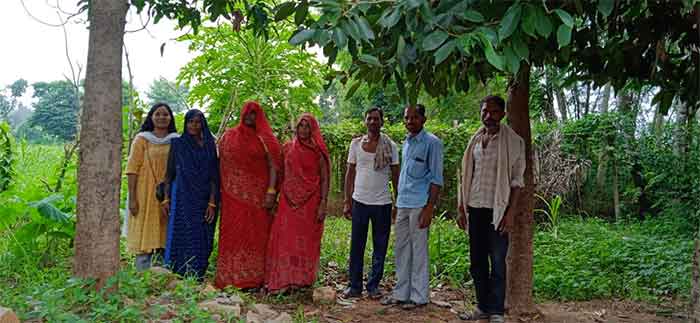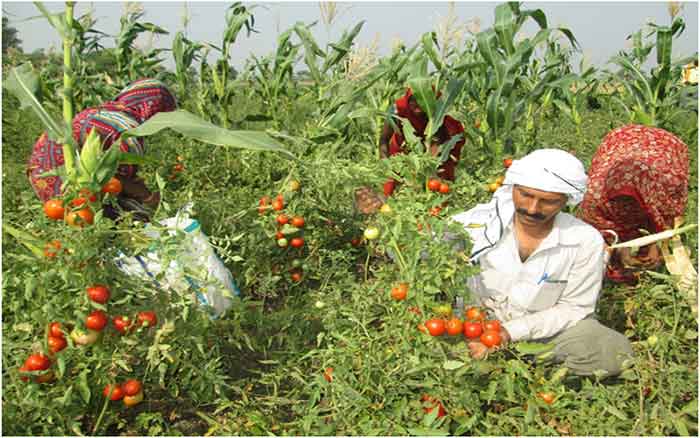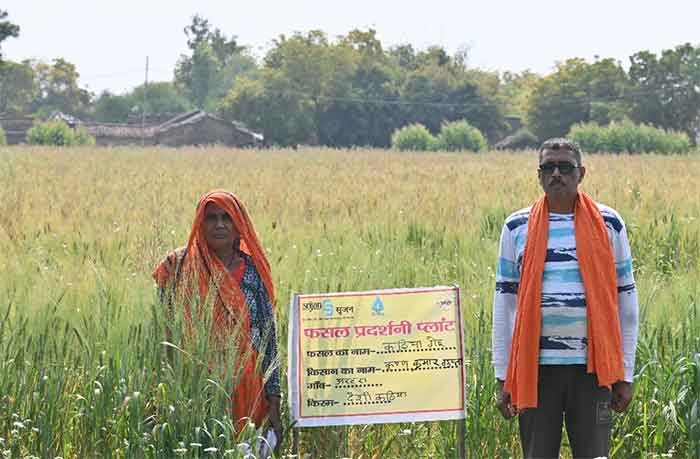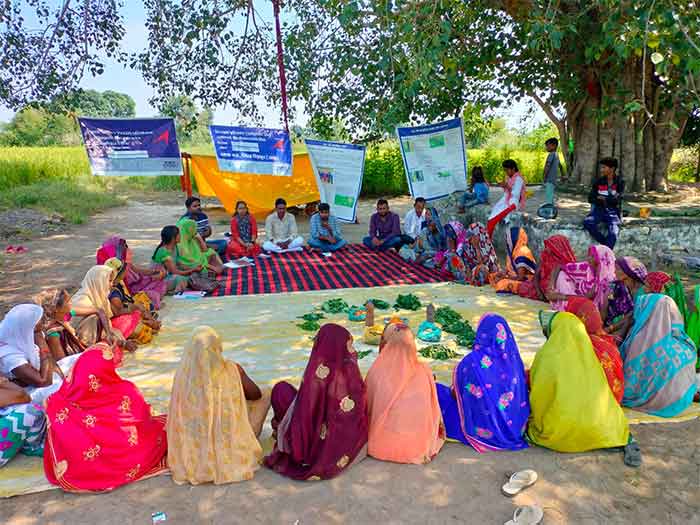
From time to time there are disturbing reports of environmental ruin in various green revolution belts of the country. The most prominent such belt is that of Punjab-Haryana-Western UP and Terai belt. Here from time to time we hear of very serious reports of water depletion and pollution, serious harm to soil health, burning of crop residues and other forms of environmental ruin. Such reports show increasing trends.
To give a recent example, The Times of India ( Chandigarh edition) reported recently on December 3 ( report titled Twice as many water samples fail test in Punjab)—“The percentage of water samples failing the quality test in 2021-22 has doubled compared to the previous year.” This report further informed that there are 575 habitations of water supply contaminated with cancer-causing arsenic. From Western Uttar Pradesh there have been several reports of extreme forms of pollution of local rivers. There have been many serious reports from this entire region of increasing health hazards, including hazards relating to chemical pesticides. There is serious loss of biodiversity with vast areas now covered by monocultures of wheat, sugarcane, rice and cotton, grown with lots of chemical fertilizers and pesticides in ways that would definitely harm the natural fertility and organic content of soil, killing micro soil organisms and earthworms, requiring massive quantities of water while also polluting water sources, while at the same time displacing time honored mixed farming systems and rotations which included nitrogen fixing legumes and helped to maintain soil and water balance. The new green revolution farming can be made economically viable in the short-term on the basis of subsidies, but clearly it is not sustainable in the longer term.
Hence for all those committed to sustainability and longer-term welfare of farmers, it is important to ask whether the farming system of such a prominent green revolution belt can ever return to ecologically protective farming. In this context the efforts made by the Kudrati Kheti Abhiyan (KKA- Campaign for Natural Farming) in Haryana in recent years are significant. Although the reach in this campaign is still not at a vast scale, within the limits of its reach it has shown significanrt results and what has been achieved by these farmers is attracting more farmers and giving hope that a return to ecologically protective farming is possible.
It is all the more encouraging that this effort is funded neither by any NGO nor by the government. It is mainly supported by the efforts of farmers as well as some enlightened consumers and citizens. As Prof. Rajendra Chaudhri, Adviser to KKA, has written, what they have already achieved is that several farmers in different parts of the state have been able to maintain green revolution type of yields while adopting natural farming. This has been possible even in the case of wheat, a crop for which this has been considered more difficult generally. What is more, direct contacts of such farmers with urban consumers have been established and some of these farmers have been able to sell their entire surplus to these consumers at a fair price, a price better than the government procurement price. As the cost of production of these farmers is also lower due to entirely avoiding chemical fertilizers and pesticides, the overall per acre net income for them has been higher than for neighboring green revolution farmers. Of course not all such farmers are equally successful as some are learning and in an experimental stage.
KKA has made it clear that merely giving up chemical fertilizers and pesticides, herbicides etc. should not be equated to natural farming as this is only an essential condition, another one being to avoid the burning of crop residues. For natural farming to succeed much more in terms of provding adequate locally available organic nutrients, soil and water conservation, better composting methods, mixed farming, biodiversity, rejection of GM crops and more have to be ensured. It is important also that the farming systems should steadily move towards self-reliance instead of getting entangled in new forms of dependence.
KKA sees the new system as a much lower cost system but certainly not a zero-budget system as organic nutrients despite being based on local resources need some expenditure at least. Besides natural farming demands much more care, which however can be very creative and absorbing work.
KKA has been bringing those engaged in and interested in natural farming together and encouraging successful farmers to be involved in training others. Earlier farmers in Haryana benefited from visiting natural farmers in other states and now they can learn from visiting the fields of successful, experienced farmers within their state. Meetings, discussion and training programs are regularly organized by KKA. Publications in easy language are brought out, inclusive of contact details of those who are progressing well with natural farming.
KKA believes that the expensive methods of handling crop residues being discussed as a solution to the problem of residue burning are not relevant as the ultimate solution is to return residues to soil to enrich soil. And this is best achieved in an overall system of natural farming.
KKA recommends that instead of trying to bring the entire farming to natural farming from green revolution farming in one sudden sweep, individual farmers may be better advised to spread this conversion over a few years, for example dividing their field in four parts and converting one part at a time in a year, learning the new system all the time as they do so.
Thus the experiences of KKA despite their limited reach so far are full of higher potential. Alternatives such as these should be carefully considered by green revolution farmers. Such alternatives are being worked out by some farmers and organizations in Punjab and Western UP also. As farmers of these three areas have come together in the course of the farmers’ movement, they should use this unity also for the highly creative and constructive task of taking forward ecologically protective farming.
Bharat Dogra is a journalist and author. His recent books include Protecting Earth for Children and Man Over Machine.
















































